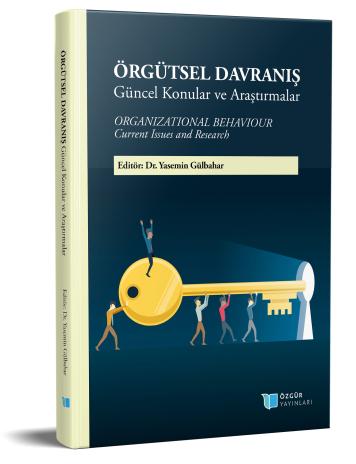
Organizational Favoritism
Chapter from the book:
Gülbahar,
Y.
(ed.)
2023.
Organizational Behaviour: Current Issues and Research.
Synopsis
The history of favoritism is a very old social, organizational and individual problem. This problem is still up to date as it was in the past. In fact, the negative effects of favoritism today are remarkable. In recent scientific studies, favoritism is shown as the source of some problems in business and social life. Nepotism and cronyism, which are the types of favoritism, are known to have some negative effects on the organization and the employees who are not favored. Nepotism and cronyism, which are related to favoritism, can reduce the level of job satisfaction and productivity of employees. Nepotism or favoring someone can reduce internal motivation and performance. Trust and image of the organization can be damaged due to nepotism in the organization. As a result of employees leaving the job, there may be an increase in the turnover. Organizational favoritism can affect other stakeholders of the society. The negativities caused by nepotism are reflected in the quality and quality of the work done by the employees and their relations with other people in social life. In addition, favoritism in employment, promotion and rewards is a frequently encountered situation. This reveals that the strategies and plans related to human resources within the organization are ignored. The quality of kinship and friendship relations is also important in organizational favoritism. Depending on the type of organization, some people have priority. Being a family member or friendship, peer-friend relationship level can be considered as a criterion for nepotism, especially when promoting and rewarding in family businesses. In such cases, it is known that the level of education, talent, experience and past achievements are not given much importance. Another basic type of favoritism other than organizational favoritism is political nepotism. If political favoritism is in question, it is possible to face employment discrimination and unfair rewards. By using the opportunities provided by the political status, the interests of some individuals and political groups can be protected and some benefits are provided to them. Although favoritism seems like a pleasant situation for the discriminated party, it is generally not welcomed by the society. It is possible to find injustice and/or inequality in all kinds of favoritism. Therefore, it is not possible to talk about justice and equality in environments where there is nepotism.

